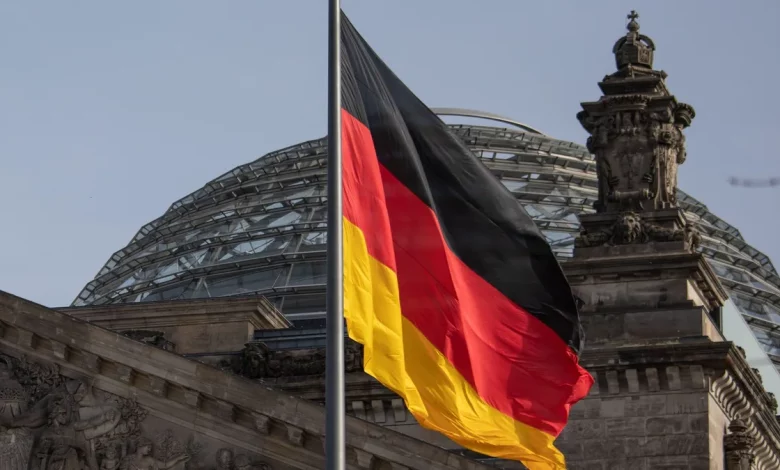Half of Germany’s On-line Playing is By way of Offshore Websites, Research Suggests

After Germany launched playing reforms a number of years in the past meant to unite the nation’s fractured gaming legal guidelines, the market was sluggish to develop. Which will have induced appreciable hurt, with a brand new research suggesting that about 50% of all on-line gaming takes place by way of black-market websites.
The German flag flies on the dome of the Reichstag constructing in Berlin. A brand new research suggests as a lot as 50% of Germany’s on-line gaming exercise takes place by way of unregulated websites. (Picture: Shutterstock)
The findings of Gunther Schnabl, an economist from the College of Leipzig, in his State Treaty on Gambling Misses Targets painting a German gaming market that’s removed from being secure. Apparently, a majority of gamers don’t give any significance to the licensing standing of the iGaming platform.
Amid these developments, curiosity teams are advocating for constitutional modifications to the playing framework. In response to the gaming regulator Joint Playing Authority of the Länder (GGL, for its German acronym), the research doesn’t mirror actuality.
Unified Gaming Regs Not Working
The evaluation delves into the habits of gamers in relation to their consumption patterns. It additionally explores the dynamic between those that adhere to authorized strategies and those that resort to illicit means. The DOCV and the DSWV, representing the German On-line On line casino Affiliation and the German Sports activities Betting Affiliation, respectively, sponsored the research.
The analysis exhibits that about 70% of on-line gamblers used licensed platforms in 2019. Now the determine has dropped to 50%. This lower, in response to the research, may be attributed to the substantial presence of a clandestine on-line black market that cunningly attracts in gamers with attractive provides and relentless promotion.
The DSWV asserts that a whole lot of thousands and thousands of euros are misplaced in taxes. This impacts state governments and in addition jeopardizes the security of the gamers.
The GGL disagrees. It says on its web site that there are round 800-900 websites accessible from Germany that provide unlicensed playing. This, it provides, is a drop from final 12 months. It’s nonetheless a substantial leap from the variety of licensed platforms, which is round 50.
The regulator additionally says that this section, composing round 3% of the overall out there market, is price as a lot as €500 million (US$545 million). That’s a big sum of money, of which a substantial share might be acquired by the federal and state governments.
At the least two German states, together with Thuringia, opted for a monopoly after they started framing their on-line gaming markets. As different nations, like Finland, have realized, it is a dropping proposition that chases away customers.
Licensed iGaming operators in Germany are additionally at a drawback in comparison with their offshore counterparts. Reforms to the Race Betting and Lotteries Act in 2021 led to the creation of a 5.3% tax on all stakes for betting, on-line poker, and on-line slots.
One other Gaming Overhaul
In gentle of the research, the DSWV is demanding change. It needs to see a swift enlargement of licensing, a surge in competitors, efficient regulation of promoting, and implementation of tax reforms.
The GGL has tried to introduce obligatory ISP blocks of internet sites, however that is unlawful. A court docket ruled earlier this year that there’s “no authorized foundation for the blocking of the web sites of a overseas playing operator ordered by the Joint Playing Authority of the Länder vis-à-vis an entry supplier.”
Maybe Germany’s iGaming market is barely experiencing rising pains that may resolve themselves with time. Nonetheless, the DSWV doesn’t need to wait round. It goals to boost the associations amongst numerous sectors that contact the gaming business, together with operators, the GGL, legislators, and curiosity teams.
It additionally believes that one other evaluate of the Interstate Treaty on Playing could also be so as. That could be a much bigger problem, with Thuringia and others with a gaming monopoly unwilling to think about any modifications that would jeopardize their positions.





